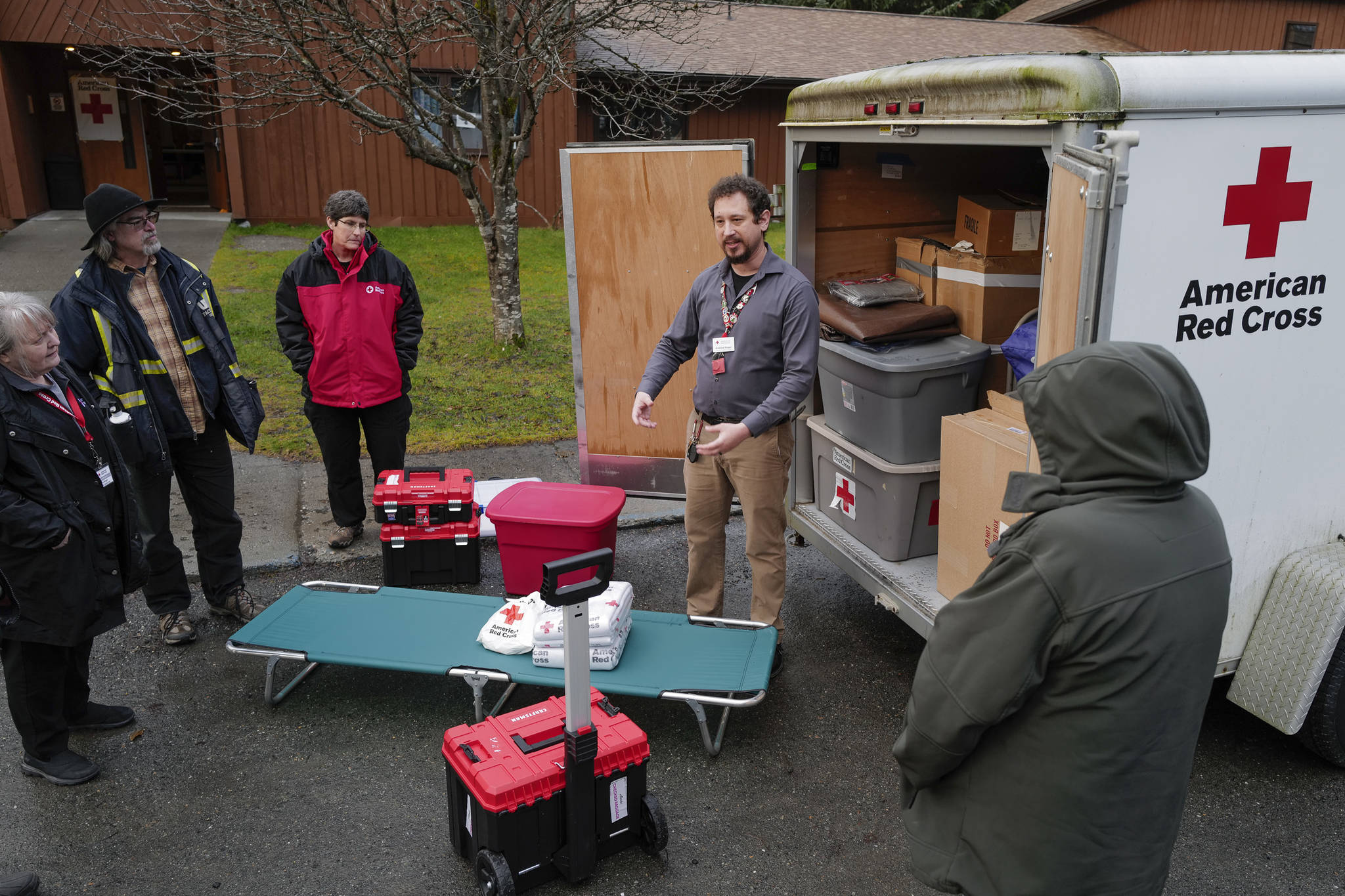The Juneau Red Cross held a three-day conference, the Southeast Disaster Institute, to enhance its disaster readiness and level of preparedness in the Southeast this week.
“We brought a training down from Anchorage to focus on the Southeast,” Sadie Hargis, Alaska Regional Training Lead for the Red Cross, said. “We want to partner with the community in a more robust way.”
Volunteers came from Sitka, Ketchikan and Prince of Wales, said Cari Dighton, regional communications officer for the Red Cross.
“Overall, this institute serves as the big event of the year where we’re able to provide our volunteers with intermediate and advanced-level training classes that are only available in person,” Dighton said. “We also take a look at trends, the interests and skillsets of our volunteers, and the needs of our communities.”
The training included both instructions for new volunteers on First Aid and basic operations, as well as in-depth training for more experienced volunteers and specialists. Red Cross personnel also conducted outreach with local religious groups as they seek to increase the on-call capacity for shelter in case of an emergency.
[Wrestling with lack of ferry service, Angoon explores stop-gap measure]
“We did some foundational training for newer volunteers, quick and easy preparedness classes,” Hargis said. “For example: what happens if someone cuts their arm off? It gives them a little more skills.”
Other volunteers, including the disaster mental health professionals and disaster health specialists went through more advanced training to better support the Red Cross mission in the event of a disaster. If stood up, every shelter will have at least one of each of these specialized personnel assigned to them, Hargis said.
“We’re actively recruiting for both,” Hargis said. “It’s a great way to keep their licensure.”
Disaster mental health professionals include volunteers from mental health related professions, and are in place to help people cope with disaster and to get through and move forward, Hargis said. Disaster health specialists are there to help victims of disaster who need things like glasses, hearing aids and prescription medicine by shortcutting pharmacies and optometrists to replace things that may have burned up or washed away.
“You work with whatever is available,” Hargis said. “We’d like to have enough capacity identified and survey so we can easily make those decisions when a disaster happens.”
Surveys include looking at the space, kitchen and bathroom facilities available when an institution volunteers its space. The idea is to see how many people could be housed there in an emergency, and what kind of logistical assets will be required to support it.
“Limiting characteristics in Juneau is things like showering facilities,” Hargis said. “Longer term shelter would be challenging here.”
Hargis also said that feeding capacity is a significant limiting factor.
Disasters that the Red Cross prepares for in the Southeast include apartment fires, floods, mudslides, earthquakes, local tsunamis, and cruise ship disasters.
“What does someone lose when they lose things? They lose their life. It’s not just their car keys,” Hargis said. “The Red Cross is here to support it and get people back to their normal life.”
To volunteer
“We’re a volunteer organization. It’s not top down; it’s primarily volunteer led with a few employees to support the volunteers,” Hargis said. “People can volunteer as much or as little as they want.”
You can look at volunteer opportunities with the Red Cross here.
• Contact reporter Michael S. Lockett at 757-621-1197 or mlockett@juneauempire.com.

